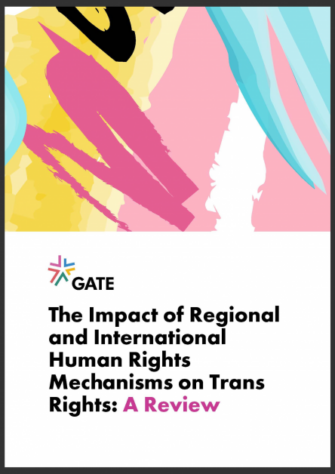GATE recently published a report The Impact of Regional and International Human Rights Mechanisms on Trans Rights: A Review.
GATE also hosted a webinar presenting the main findings from this report, discussing how different regional and international human rights mechanisms are dealing with gender identity-related issues.
“Trans rights are human rights” is a concept that should not be debatable and should be accepted by all. However, anti-gender actors have been working to undermine this concept by trying to separate trans rights from human rights. Anti-gender actors have been attempting to mobilize diverse anti-trans rights discourses, including religious and anti-gender narratives, and co-opting feminist principles to dehumanize and exclude trans people from the human rights discourse and fabricate public moral panic regarding progressive pro-trans policies.
Despite those attempts, trans rights have seen rapid positive developments in many countries across the globe, fueled by the resilience of local trans communities and activists together with their allies. Allyship is central to the advancement of trans rights globally; international and regional human rights mechanisms have proven to be strong allies when it comes to supporting global trans movements. As outlined in the following chapters, trans rights are not a new invention, but an extension of the various fundamental human rights protected by international and regional human rights mechanisms. In recent decades, those mechanisms have been working to affirm the concept that “trans rights are human rights” to counter growing discrimination and violence against trans people globally, by providing new interpretations and opinions that extend the protections and rights under different human rights treaties to include trans rights.
This report outlines the positive progress happening in international, regional, and national mechanisms for trans rights. Looking at how human rights mechanisms are dealing with gender identity-related issues, it is designed to assist activists, policymakers, and other stakeholders in understanding how international and regional human rights standards can be an asset in their fight against anti-gender actors and their narratives. It also provides insights into recent policy and legal advancements regarding gender identity across a range of thematic matters, such as access to gender-affirming healthcare, legal gender recognition, protection against harmful practices, anti-discrimination, treatment of trans minors, and trans rights organizing.






